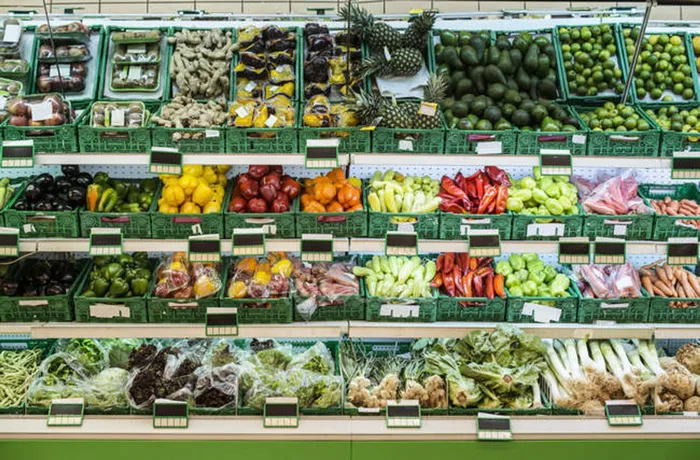
Adapt or starve.
That is the stark choice facing South Africans as the country experiences more hikes in fuel, utilities and food prices.
In spite of yesterday’s announcement by the government that it would temporarily reduce fuel levies, other bodies are warning about looming hunger.
But South Africans are also wasting nearly a fifth of what they buy.
The Institute of Waste Management of Southern Africa president Brendon Jewaskiewitz said about 50% of food waste occurred during the processing and packaging stage and he was “alarmed that there seems to have been an increase of about 18% of total food waste occurring at the consumption stage".
Jewaskiewitz said companies were becoming much more aware of what they can do to minimise food waste in the supply chain stages to minimise oversupply.
“Retailers are also cutting down on slow-moving lines, where there isn’t a huge demand and if there is an oversupply, a lot of it goes to waste.”
Merwyn Abrahams, senior manager of the advocacy and policy unit at the Pietermaritzburg Economic Justice and Dignity (PMBEJD) group, said the country and individual households needed to build resilience and that "I don’t think we have seen the increases that are going on on the global markets".
“We do not control the fuel price and there will always be a crisis that will push up fuel prices. Today it is what is happening in Ukraine, tomorrow it could be trouble in the Middle East,” he said.
One way of doing this he believes is by using rail instead of roads to move produce.
Also to bring down the price of food, Abrahams believes in breaking monopolies and growing produce closer to urban centres
An example of this he said was the spike in the price of tomatoes last year, which was caused by drought conditions in Limpopo.
“A lot of our tomatoes sold in Durban and the Cape, and all came from Limpopo. The idea of having much smaller farms localised around our cities means that we build resilience in our food system,” Abrahams said.
This week, the organisation released its latest Household Affordability Index.
The Index tracks food prices across five cities and towns: Johannesburg, Durban, Cape Town, Pietermaritzburg and Springbok. The data is collected across 44 supermarkets and 30 butcheries.
What they found was that the average cost of the Household Food Basket for March was R4 450.09, an increase of R94 from February.
Year on year, this increase was R410.53. The food products that saw the highest price increases were cake flour, cooking oil, eggs, tea and bread. Also included were maize meal, rice and white sugar.
South Africans did experience some relief in March when the minimum wage was increased by R1.50 an hour, moving it from R21.69 to R23.19 an hour. While this does help, said Abrahams, the problem is that transport, electricity and food costs are going to increase beyond this increment.
The Minister of Finance announced that from April 6 to May 31, the R1.50c per litre reduction in the general fuel levy will see the petrol and diesel levies lowered from R3.85c to R2.35c and R3.70c to R2.20c per litre respectively.
Dr Lumkile Mondi, of the School of Economics and Finance at the University of the Witwatersrand in Johannesburg, believes there is not much that can help poor South Africans fight off these energy and food price hikes.
Other countries, such as the United States, have used food banks to feed the poor in times of crises, including during the Covid pandemic.
The fuel tax relief “affected a different class of people. Any measure introduced by the state should be a measure that is broadly distributed. The relief should touch everyone,” Mondi said.
Agri SA welcomed the temporary reduction of the general fuel levy, calling it a necessary intervention to buttress the agricultural sector and consumers against the impact of rising fuel prices on the cost of food.
“It is essential that government be amenable to the expansion of these interventions, depending on the conditions prevailing in the global fuel market at the end of the two-month period.”
The Organisation Undoing Tax Abuse (Outa) added its voice, with chief executive Wayne Duvenage saying: “If anything good has come from the recent high petrol prices, it is government’s realisation that it needed to halt its incessant annual levy increases and to take a serious deep dive into reviewing the various components that make up the price of petrol in South Africa.”
eThekwini Municipality said communities were warming up to its Adopt-A-Spot initiative that enabled them to plant gardens in public spaces.
“Over and above this, the city has made available a tractor that is hired out for free to our communities to grow their crops. We are also providing them with seeds of different kinds of vegetables whose surplus is going to go to the market to help them to get some income,” said spokesman Msawakhe Mayisela.
“The city would like to encourage all residents to ensure that they make use of their gardens to produce food now that our country and the world is engulfed by food insecurity compounded by geopolitical wars in eastern Europe,” he added.
Jewaskiewitz also said a lot of excess food can be redistributed and donated to the poor. “I think a lot of these big retailers are doing a lot more of that these days than they were in the past.”
The Independent on Saturday